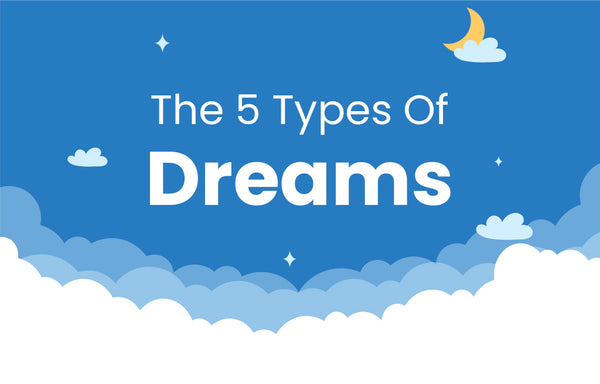Have you ever experienced a dream so vivid and emotionally intense that it felt like a movie unfolding before your eyes? Dreams have long intrigued and puzzled us, and some of them can be so epic and cinematic in nature that they leave a lasting impression. In this article, we will explore the fascinating world of epic dreams, their connection to the cinematic realm, and the profound impact they can have on our minds. Let’s embark on a journey of understanding dreams that feel like movies.
Understanding Dreams and Their Significance
Dreams are a mysterious phenomenon that occurs during sleep, and they are essential to human life. They can vary in intensity and content, ranging from mundane to surreal and even epic. While scientists have made significant strides in understanding sleep and dreaming, the exact purpose of dreams remains a subject of debate.
Throughout history, dreams have held cultural and spiritual significance. In ancient civilizations, dreams were considered messages from the gods or a glimpse into the future. In modern times, they have been subjects of psychological inquiry and introspection.
The Cinematic Experience of Epic Dreams
Epic dreams are a category of dreams that stand out due to their extraordinary vividness, intricate plots, and emotional depth. In many ways, they mirror the experience of watching a captivating movie, where the dreamer becomes both the audience and the protagonist.
Epic dreams are like immersive, personalized films created by our subconscious mind,” says Dr. Rebecca Hernandez, a dream researcher. “They often feature rich visual details, engaging characters, and compelling storylines that can leave a lasting impact on the dreamer.”
Theories and Research on Epic Dreams
Various psychological theories attempt to explain the origins and meaning of epic dreams. Sigmund Freud, the father of psychoanalysis, believed that dreams were a gateway to our unconscious desires and hidden thoughts. According to Freud, epic dreams were a reflection of unfulfilled wishes or repressed emotions.
Carl Jung, another influential psychologist, emphasized the importance of symbols and archetypes in dream interpretation. He believed that epic dreams could serve as a bridge between the personal unconscious and the collective unconscious shared by all humans, tapping into universal themes and experiences.
Modern scientific research suggests that dreams play a role in memory consolidation, problem-solving, and emotional processing. Dr. Emma Turner, a cognitive neuroscientist, explains, “Epic dreams may serve as a way for our brains to integrate and process complex emotions and experiences, helping us make sense of our waking lives.”
Real-Life Examples of Epic Dreams
Throughout history, there have been numerous accounts of epic dreams that have captivated individuals and left a lasting mark on their lives. One such example is the dream of mathematician Srinivasa Ramanujan, who attributed many of his groundbreaking mathematical discoveries to dreams, saying that the goddess Namagiri revealed them to him in his sleep.
Furthermore, artists and writers have often drawn inspiration from their epic dreams. Salvador Dali, the renowned surrealist painter, famously depicted scenes from his dreams in some of his most iconic artworks, blurring the lines between reality and the subconscious.
Lucid Dreaming and the Cinematic Control
Lucid dreaming is a state in which the dreamer becomes aware that they are dreaming and can exert some level of control over the dream’s content. This phenomenon offers a unique opportunity to direct and shape epic dreams, effectively becoming the dream’s director and protagonist.
Lucid dreamers can explore vast dreamscapes, interact with dream characters, and even alter the dream’s narrative. “Lucid dreaming is like being in a virtual reality movie where you get to choose the plot and characters,” says Lucy Johnson, an experienced lucid dreamer.
Unraveling the Symbolism in Epic Dreams
Epic dreams often feature symbols and motifs that carry significant personal or cultural meaning. These symbols can provide valuable insights into the dreamer’s subconscious mind, serving as a pathway to self-discovery and understanding.
A recurring dream theme, such as flying or falling, can represent a sense of freedom or fear of losing control in one’s waking life. Interpreting these symbols requires introspection and understanding of one’s emotions and experiences.
The Impact of Epic Dreams on Creativity and Artistic Expression
Epic dreams have inspired artists, writers, musicians, and creators throughout history. The emotional intensity and captivating imagery experienced in epic dreams often find their way into various forms of artistic expression.
Renowned filmmaker Christopher Nolan once said, “Many of my ideas for movies have come to me in dreams. Dreams have this amazing ability to tap into our deepest emotions and creativity, providing a wellspring of inspiration.”
Harnessing Epic Dreams for Personal Growth and Problem-Solving
For those willing to explore the depths of their epic dreams, they can become valuable tools for personal growth and problem-solving. By keeping a dream journal and reflecting on the dreams’ symbolism, individuals can gain insights into their emotional struggles and inner conflicts.
Lucia Williams, a psychotherapist specializing in dream analysis, advises, “Engaging with your epic dreams can be transformative. They offer a unique window into your subconscious mind, guiding you toward resolution and self-awareness.”
The Role of Culture and Media in Influencing Epic Dreams
Our waking experiences, including exposure to various forms of media like movies, books, and television, can influence the content of our dreams. Epic dreams may draw inspiration from cinematic storytelling, borrowing elements from familiar narratives or characters.
Additionally, cultural factors can shape dream content. People from different cultural backgrounds may experience certain symbols or themes more frequently in their epic dreams, reflecting their collective beliefs and values.
Epic Nightmares: When Dreams Turn into Cinematic Horrors
Not all epic dreams are pleasant experiences. Sometimes, dreams can take a dark turn, manifesting as nightmares filled with cinematic horrors. Nightmares can be emotionally distressing and even cause physical reactions like increased heart rate and sweating.
Dr. Sarah Thompson, a sleep specialist, suggests that nightmares can stem from unresolved trauma or stress in one’s waking life. “Addressing the root causes of these nightmares is essential to finding peace and better sleep,” she advises.
The Future of Dream Research and Technology
Advancements in technology are opening new frontiers in dream research. Researchers are exploring innovative ways to study dreams, such as using brain imaging techniques to observe brain activity during sleep.
Virtual reality is also showing promise in recreating dream-like experiences, allowing individuals to step into their epic dreams while awake. However, ethical considerations must be carefully examined to avoid potential misuse of dream manipulation technologies.
Conclusion
Epic dreams offer us a glimpse into the boundless creativity of the human mind. Their cinematic quality and emotional depth make them a fascinating subject of study and introspection. Whether you are an avid dreamer or someone who rarely remembers their dreams, exploring the world of epic dreams can provide profound insights into the human experience.
So, the next time you find Clicking Here yourself lost in the vivid tapestry of your dreams, remember that you are not just a spectator but a creator of your very own cinematic reveries.

Greetings and welcome to my realm of dreams, emotions, and spiritual insight. I’m Nathaniel Cole, your dedicated companion on a transformative journey through the world of dreams and their profound meanings. Read more


